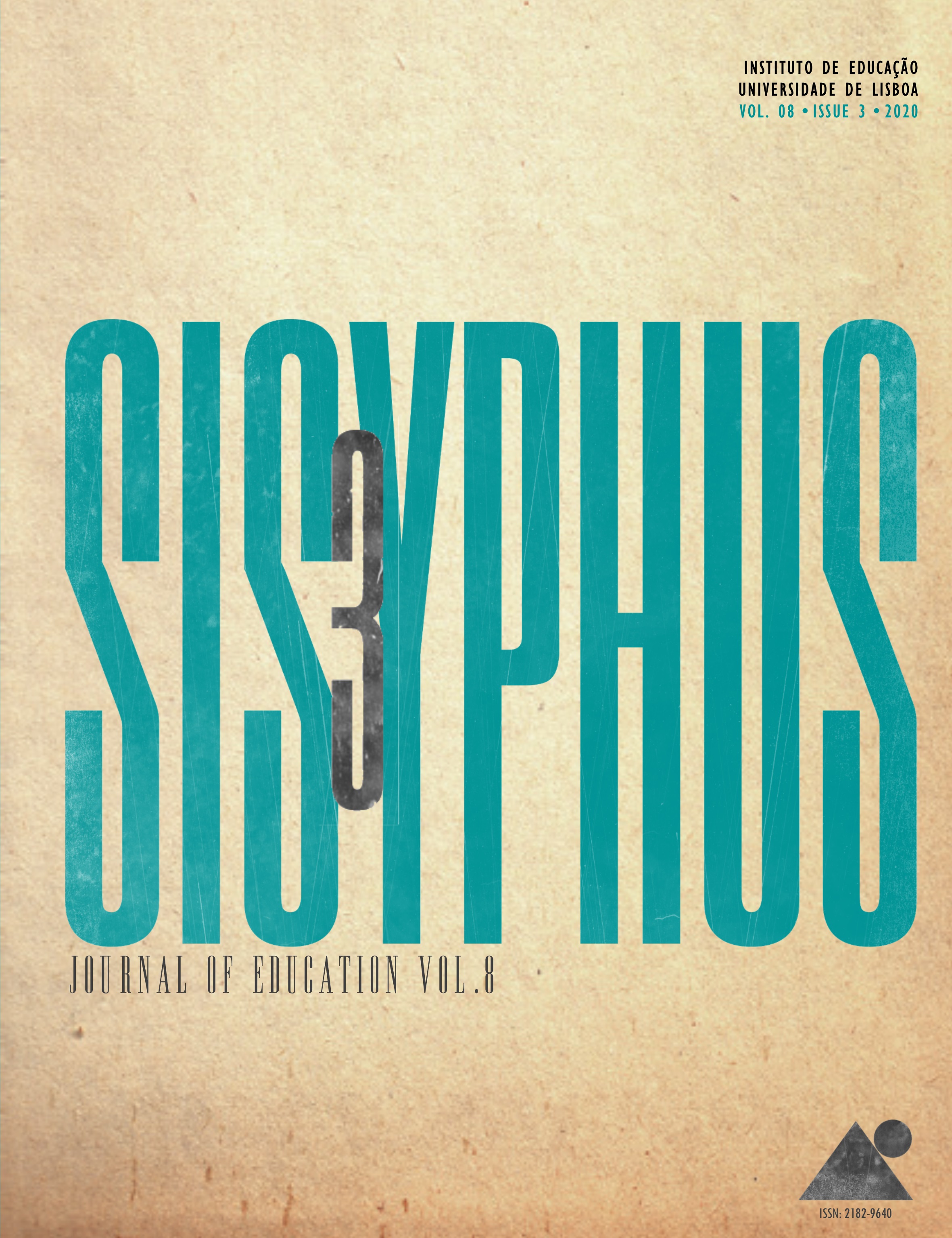Liberación como dependencia
Reconceptualización de la Educación Emancipadora en el Nuevo Régimen Climático
DOI:
https://doi.org/10.25749/sis.20107Palabras clave:
Latour, emancipación, Freire, cambio climático, políticaResumen
Bruno Latour sostiene que actualmente vivimos en un Nuevo Régimen Climático, donde oposiciones binarias como Naturaleza / Cultura y Sujeto / Objeto impiden el desarrollo de modos de política capaces de acción colectiva. El Nuevo Régimen Climático requiere la reconstrucción de las relaciones humanas con el mundo más que humano, incluida la política contemporánea de la educación, que se desarrolló principalmente en respuesta a problemas agrupados en la categoría de ‘lo social’. Aquí, los académicos se han preguntado cómo la educación podría jugar un papel en la emancipación de individuos y grupos de las fuerzas sociales opresivas. Sin embargo, el cambio climático es un tipo diferente de problema político, en el que la lógica de la emancipación parece romperse. Este artículo pone el pensamiento de Latour en conversación con las prácticas de educación liberadora de Paulo Freire para indagar sobre el papel que la educación emancipadora podría desempeñar en la generación de acciones colectivas hacia el cambio climático y otros problemas del presente.
Descargas
Citas
BIESTA, G. (2008). Toward a new “logic” of emancipation: Foucault and Rancière. Philosophy of Education, 169-177.
BIESTA, G. (2010). A new logic of emancipation: The methodology of Jacques Rancière. Educational Theory, 60, 39-59.
BLASER, M., & CADENA, M. (2018). Introduction: Pluriverse - proposals for a world of many worlds. In M. CADENA & M. BLASER (Eds.), A world of many worlds (pp. 1-21). Durham, N.C. and London: Duke University Press.
CADENA, M., & BLASER, M. (Eds.) (2018). A world of many worlds. Durham, N.C. and London: Duke University Press.
CHARBONNIER, P., SALMON, G., & SKAFISH, P. (Eds.) (2017). Comparative metaphysics: Ontology after anthropology. London, UK: Rowman & Littlefield International.
COLAPIETRO, V. (2011). Situation, meaning, and improvisation: An aesthetics of existence in Dewey and Foucault. Foucault Studies, 11, 20-40.
CHAKRABARTY, D. (2009). The climate of history: Four theses. Critical Inquiry, 35(2), 197-222.
DEBAISE, D. (2017). Nature as event: The lure of the possible. Durham, N.C. and London: Duke University Press.
Freire, P. (2012). Pedagogy of the oppressed. (30th anniversary edition). New York: Bloomsbury.
GRANDE, S. (2004). Red pedagogy: Native American social and political thought. Lanham, MD: Rowman & Littlefield Publishers.
HARAWAY, D. (2016). Staying with the trouble: Making kin in the Chthulucene. Durham, N.C. and London: Duke University Press.
LATOUR, B. (1987). Science in action: How to follow scientists and engineers through society. Cambridge, Mass.: Harvard University Press.
LATOUR, B. (1991). We have never been modern. Cambridge: Harvard University Press.
LATOUR, B. (2004). Politics of nature: How to bring the sciences into democracy. Cambridge, MA: Harvard University Press.
LATOUR, B. (2005). Reassembling the social: An introduction to actor-network-theory. Oxford and New York: Oxford University Press.
LATOUR, B. (2013). An inquiry into modes of existence: An anthropology of the moderns. Cambridge, MA: Harvard University Press.
LATOUR, B. (2017). Facing Gaia: Eight lectures on the new climatic regime. Cambridge, UK: Polity Press.
LATOUR, B. (2018). Down to earth: Politics in the new climatic regime. Cambridge, UK: Polity Press.
LATOUR, B., & LENTON, T. M. (2019). Extending the domain of freedom, or why Gaia is so hard to understand. Critical Inquiry, 45(3), 659-680.
REITER, B. (Ed.) (2018). Constructing the pluriverse: The geopolitics of knowledge. Durham, N.C. and London: Duke University Press.
SIEGEL, H. (1985). Educating reason: Critical thinking, informal logic, and the philosophy of education. Part two: Philosophical questions underlying education for critical thinking. Philosophy Articles and Papers, paper 14.
STOUT, R. (2005). Action. Montreal & Kingston: McGill-Queen’s University Press.
WALSH, C. E., & MIGNOLO, W. D. (2018). Introduction. In W. D. MIGNOLO & C. E. WALSH, On decoloniality: Concepts, analytics, praxis (pp. 1-12) Durham, N.C. and London: Duke University Press.
WYNTER, S. (2003). Unsettling the Coloniality of Being/Power/Truth/Freedom: Towards the Human, After Man, Its Overrepresentation—An Argument. CR: The New Centennial Review, 3(3), 257-337.
WYNTER, S., & MCKITTRICK, K. (2015). Unparalleled catastrophe for our species? Or, to give humanness a different future: conversations. In K. MCKITTRICK & S. WYNTER, On being human as praxis (pp. 9-89). Durham, N.C. and London: Duke University Press.
Descargas
Publicado
Número
Sección
Licencia
Copyright (c) es propiedad de Sisyphus – Journal of Education. Sin embargo, alentamos que los artículos publicados en la revista se publiquen en otro lugar, siempre que se solicite el permiso de Sisyphus y los autores incorporen nuestra cita original y un enlace a nuestra página web.
Política de Autoarchivo
Los autores pueden autoarchivar la versión final publicada de sus artículos en repositorios institucionales, temáticos o páginas web personales e institucionales.
Suscriptor de DORA
El Instituto de Educação de la Universidade de Lisboa, editor de Sisyphus, es uno de los suscriptores de la Declaración de San Francisco sobre la Evaluación de la Investigación (DORA).





